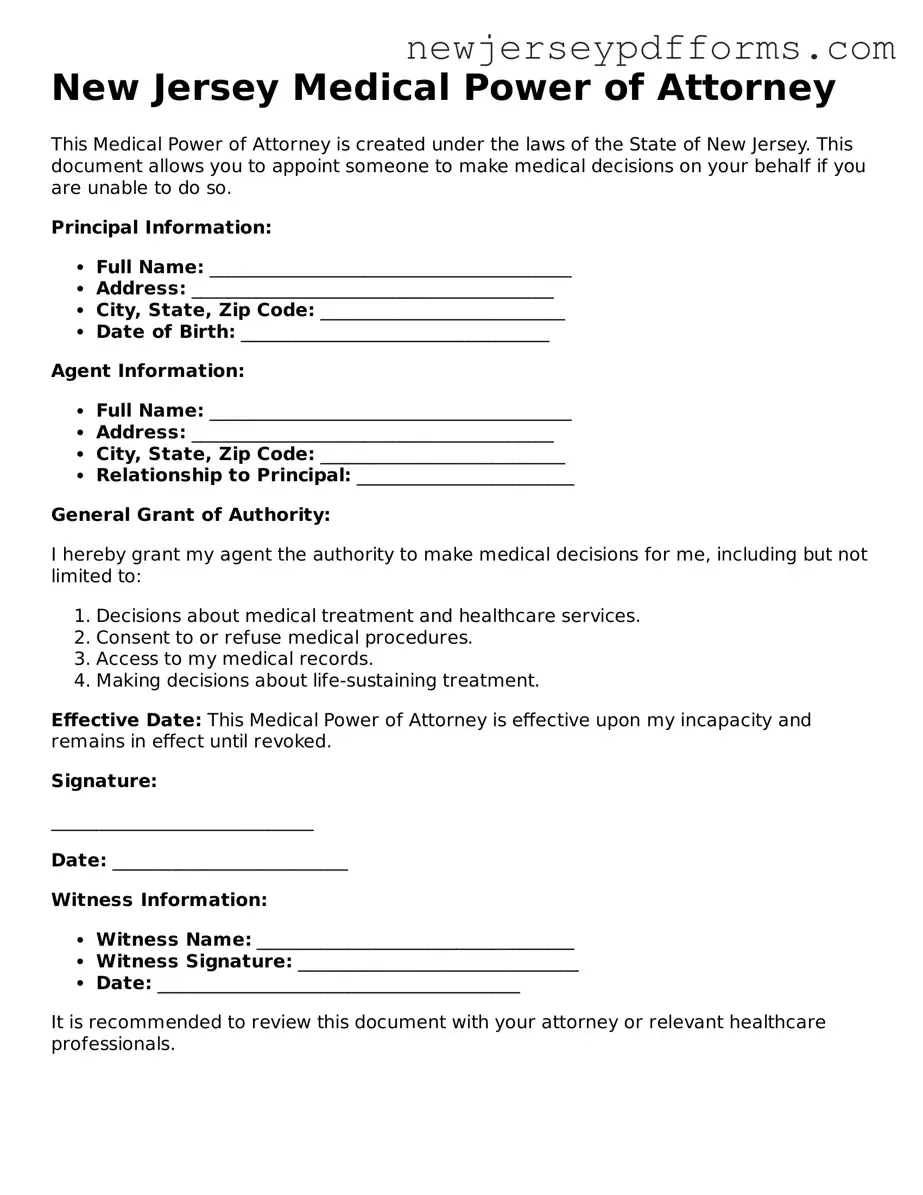Valid Medical Power of Attorney Document for the State of New Jersey
The New Jersey Medical Power of Attorney form is a legal document that allows individuals to designate someone they trust to make healthcare decisions on their behalf if they become unable to do so. This form ensures that a person's medical preferences are honored and that they receive the care they desire. To take control of your healthcare decisions, consider filling out the form by clicking the button below.
Open Editor Here

Valid Medical Power of Attorney Document for the State of New Jersey
Open Editor Here

Open Editor Here
or
Download Medical Power of Attorney PDF Form
Complete the form before time runs out
Edit your Medical Power of Attorney online and complete it quickly.